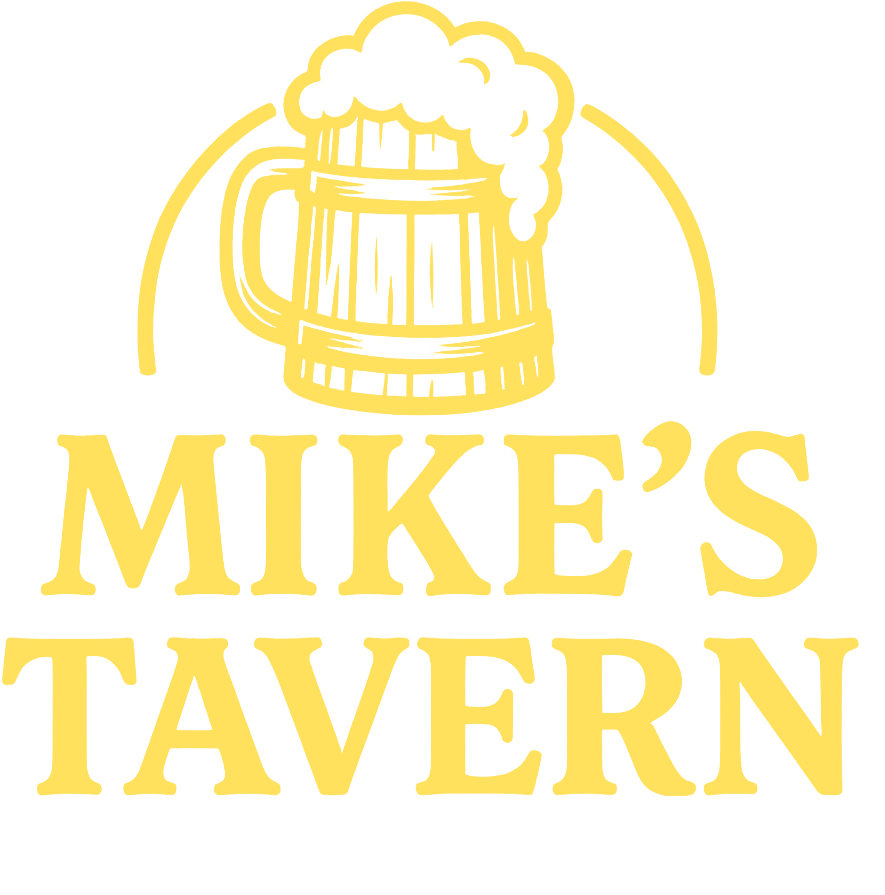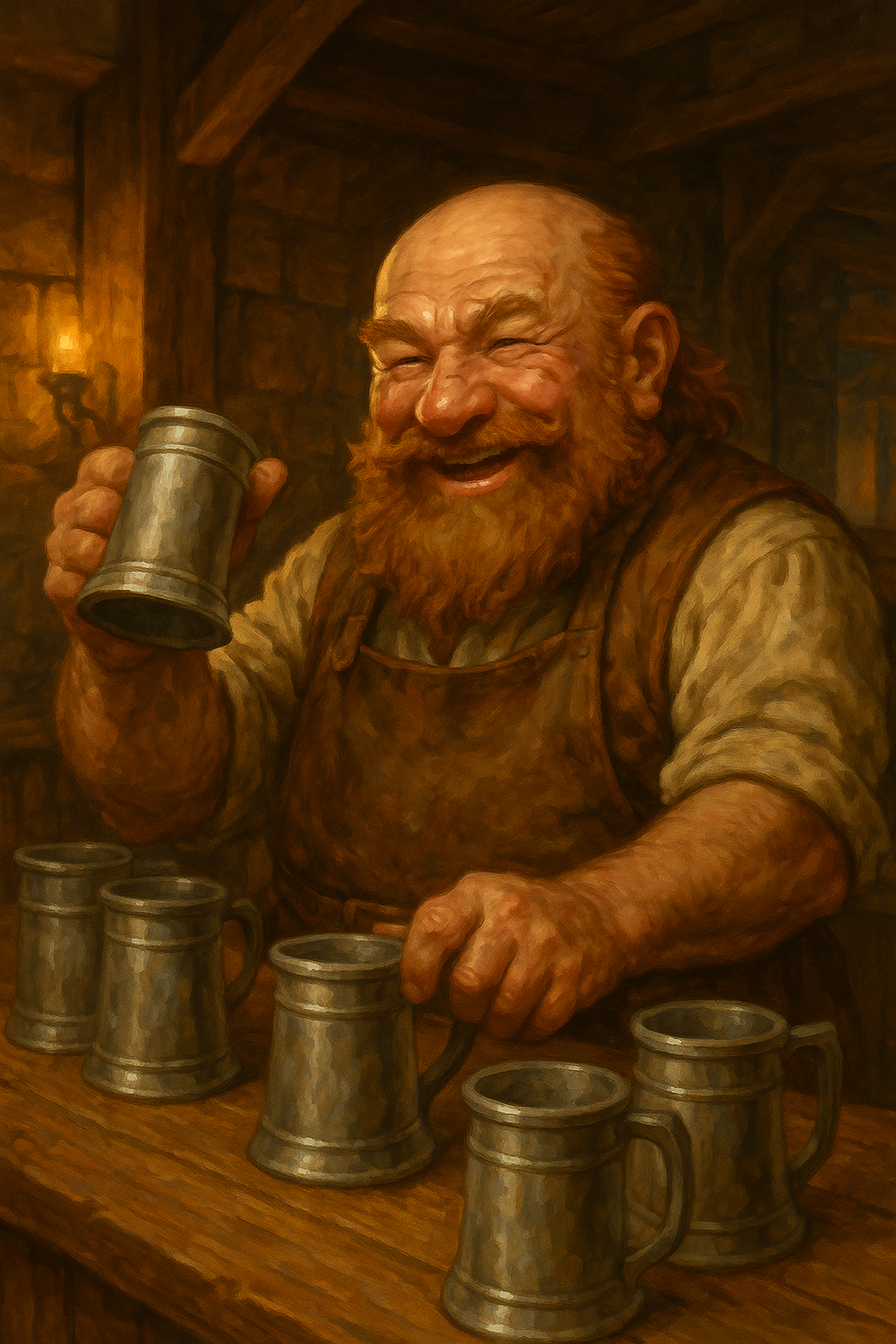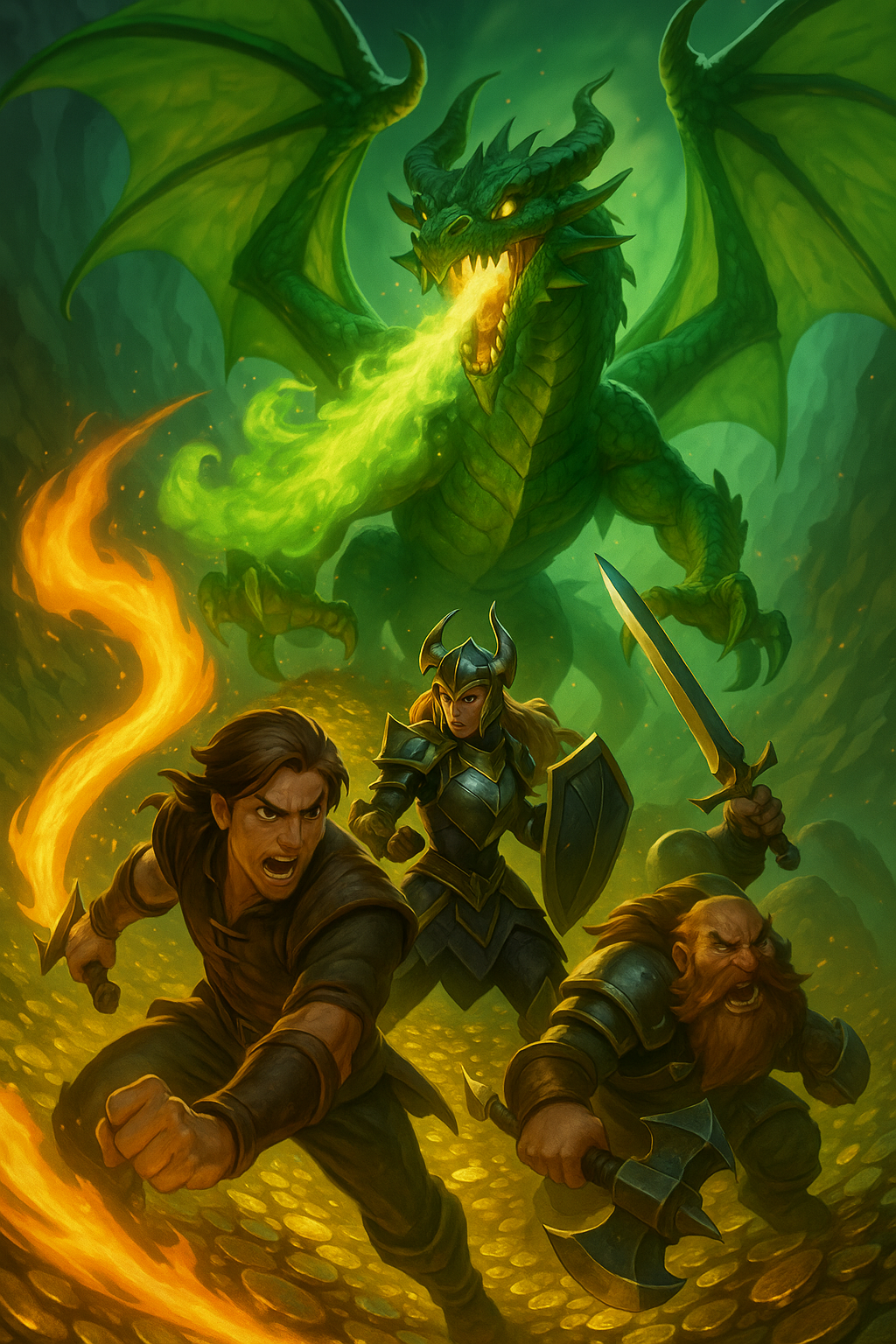Frequently Asked Questions
What is Mike’s Tavern Blog about?
Mike’s Tavern is a warm corner of the realms where Game Masters gather around the hearth to share ideas, sip something comforting, and sharpen their craft. Whether prepping for the next D&D or Pathfinder session, GMs will find practical advice, homebrew inspiration, and storytelling tips ready to slip into the next adventure. No matter if it’s a bustling city crawl or a dungeon echoing with secrets, Mike keeps the lantern lit for those looking to run memorable games.
Who writes the articles on Mike’s Tavern?
Mike’s Tavern is a warm corner of the realms where Game Masters and players alike gather around the hearth to share ideas, sip something comforting, and prepare for the next adventure. Whether prepping a D&D or Pathfinder session or planning a character’s next steps, travelers will find practical advice, homebrew inspiration, and storytelling tips ready to slip into the next game. No matter if it’s a bustling city crawl or a dungeon echoing with secrets, Mike keeps the lantern lit for those looking to create memorable games and play amazing characters.
Can I submit my own campaign story, character build or NPC concept?
The hearth fire is always open to stories from those who wander in. If a Game Master has a memorable villain, a curious NPC, or a tale from a D&D or Pathfinder session worth sharing, Mike welcomes a note slipped under the tavern door. Players are welcome too, feel free to share a character build that sparked laughter, turned the tide of a battle, or brought a story moment to life. Tell Mike about some of your stories; they may find their place on the tavern walls as well! Lets have a chat!
Do you offer downloadable resources for GMs?
Mike keeps a shelf behind the bar stocked with tools for Game Masters to grab when a session needs a spark. From NPC templates to encounter worksheets and session prep checklists, these resources are crafted to slip easily into D&D and Pathfinder games. They’re made to be print-friendly and quick to reference when the table is ready to roll dice. Those looking to browse what’s available can find both free and premium tools waiting at the Tavern Counter.
How can I stay updated with your latest articles?
Those wishing to keep up with the stories, tips, and new tools coming out of Mike’s Tavern can hang a small bell on the tavern door by subscribing to the newsletter. New articles arrive alongside reflections and inspiration for D&D and Pathfinder sessions, delivered directly to your inbox when they’re ready. Travelers will soon be able to also follow the tavern’s notices on Instagram and Twitter for micro-tips, quick ideas, and community stories ready to bring to the table on game night.
I’m a new GM. Where should I start at Mike’s Tavern?
Pull up a stool by the fire. Every GM starts somewhere, and there’s no need to feel the weight of the world on your shoulders alone, Mike has your back! Mike’s Tavern has guides for crafting your first sessions, running your first encounters, and preparing your mind for the surprises players will toss your way in your first D&D or Pathfinder campaign. A good place to begin is by reading a post or two on prepping your first adventure or draw some inspiration here, then trying out a small one-shot session with your group. The goal isn’t to be perfect, but to keep the dice rolling and enjoy the stories that unfold.
How can I improve my GMing style?
Mike often says every GM has a style, even if they don’t know it yet. Some GMs love weaving deep stories; others thrive in chaotic improv, letting players shape the path. Improving your GMing style starts with noticing what moments bring joy to your table—both to your players and to yourself. Experiment with different pacing, try adding small roleplay moments between battles, or test a new encounter twist. At the tavern, you’ll find reflections on building confidence behind the screen, learning from each session, and balancing storytelling with mechanics so your games become more fun for everyone at the table, including you.
How can I create better encounters for my players?
A good encounter can be the heartbeat of a session, and it doesn’t always have to be a combat slog. When building encounters for D&D and Pathfinder, consider what your players enjoy: do they like tense negotiations, tricky puzzles, or cinematic battles with shifting terrain? Adding elements like meaningful stakes, interesting locations, and player choices can turn a standard fight into a memorable moment. Mike often suggests planning how an encounter might start and end, but leaving the middle open for your players’ choices to shape the scene. At the tavern counter (Coming Soon) and the GM Wisdom page, there’s plenty of guidance on pacing, environment, and crafting challenges that invite players to think creatively, not just roll dice.
How do I handle problem players at the table?
Every table sees its share of challenges, whether it’s a player who talks over others, someone who argues every rule, or a character whose actions disrupt the fun for the group. Mike’s advice: address it early, calmly, and kindly. Often, a quiet word outside the session can clear the air and help the player understand how their actions affect the table. Setting clear expectations during session zero can help prevent issues before they grow, and remembering that everyone is there to enjoy the game—including the GM—can guide the conversation. The goal isn’t to shame or punish but to bring the table back to a place where everyone can enjoy the adventure.
I’m new to D&D/Pathfinder. Can Mike’s Tavern help me?
The tavern doors are open to players too, whether you’ve never rolled a d20 or you’ve just stepped into your first campaign. Mike’s Tavern offers explanations of basic rules, tips for understanding how your character can shine in combat and roleplay, and advice for feeling more confident at the table. There’s no need to know everything at once; learning as you go is part of the adventure. Whether you’re curious about spellcasting, building a character, or figuring out how to contribute to your party, there’s something here to help you feel ready when the dice hit the table.
How can I become a better player for my GM and my party?
A good player helps make every session better, not just for themselves but for everyone around the table. Being ready for the session, knowing your character’s abilities, and paying attention during play are all ways to help the game flow. But beyond that, supporting your fellow players’ moments, sharing the spotlight, and respecting the story the GM is building all help keep the table’s spirit strong. Mike often reminds travelers that the best games are built together, with players and GMs creating a story worth telling—one where laughter, surprises, and shared victories become memories for everyone.
Why don’t you post on Sundays?
We intentionally rest on Sundays in alignment with our Catholic Christian values. Sundays are reserved for reflection, worship, and restoration—no new content is published on this day.
What kind of content does Mike’s Tavern publish?
Mike’s Tavern focuses on Game Master guides, player tips, builds and worldbuilding tools, and in-universe lore presented through articles called Tavern Tales. Each week features a structured mix of practical advice, entertaining reads, and character-building content.
Is this blog only for Dungeons & Dragons?
Not at all. While D&D players will find much of the content useful, Mike’s Tavern also serves GMs and players of Pathfinder, OSR systems, and most fantasy TTRPGs. Our guides focus on universal storytelling and table dynamics.
How often do you post new articles?
Currently, we post six days a week. That includes four Game Master articles, two Player Tips, and either a Tavern Tale or Quest Board feature weekly. At some point, we’ll increase to eight posts per week with double posts on Mondays and Tuesdays!
Who is Mike, and is he a real person?
Mike is a fictional barkeep and former adventurer who narrates many of the articles with his own gruff wisdom. He’s not a real person—but his voice brings life to the blog, drawing on real experience, humor, and TTRPG culture.
Can I share your content on Reddit, Discord, or social media?
Absolutely. We welcome shares, especially with credit or a direct link to the article. Please avoid reposting the full content without permission. Let others know where they can pull up a chair.
Can I write for Mike’s Tavern?
At this time, we’re not accepting guest submissions—but we appreciate community interest. In the future, we may open a submissions process for guest perspectives or short-form content under the Quest Board series.
Why is the tone of the blog so different from the FAQ?
The blog reflects the voice of Mike, our in-world tavernkeeper and narrator. The FAQ, however, is written in a neutral tone to help visitors find clear answers quickly. We believe in keeping the fire hot and the ledger clean.
Why should I trust the advice on Mike’s Tavern?
Because it comes from actual table experience, the kind you can’t fake. I’ve salvaged a campaign before it even started by setting clearer expectations, leaning on my most experienced player, and swapping “do anything you want” chaos for a clear Point-A-to-Point-B mission. That single shift kept the group focused and made the game fun again. Everything here is forged the same way: real problems, real fixes, no fluff.
Does Mike’s Tavern help with toxic players or GMs?
Yes. Sometimes the right move is to talk it out. Sometimes, the right move is to walk away. I’ve sat under a prideful GM who hurt players, including me, and wouldn’t own it. I learned quick: a toxic table stays toxic unless someone changes, and if they won’t, you leave. Mike’s Tavern gives you the tools to spot trouble early, and the courage to protect your game (and yourself).
What if I’m in the middle of a session and things are falling flat?
Been there. Once ran an investigation where the party missed every clue. So I took their wildest guess, declared they were right, and built the reveal on the spot. The secret? Make your players feel clever and seen. They’ll remember how smart they felt, not that you rewrote the truth in real time. That’s the kind of improvisation tips you’ll find here.
Do you make homebrew gear that actually changes the game?
Absolutely. I once dropped a high-risk, high-reward blunderbuss into a player’s hands, slow to reload, but devastating on a hit. That weapon became their trademark, and they found ways to use the reload time as a tactical advantage. Mike’s Tavern armory isn’t about +1 swords; it’s about gear that inspires clever play.
What if my players are… weird?
Weird players are golden players. I’ve had players blurt out bizarre, random ideas and instead of shutting them down, I stop, think, and work them in. That’s how you make people feel welcome, even the ones who play left-field. Mike’s Tavern will teach you how to turn “what?” into “wow.”
Why not just get ideas from Reddit or Discord?
Those places are great for chatter. But Mike’s Tavern is a hub. Every answer here connects to deep-dive guides, detailed tools, and custom PDFs built to lighten your GM load. We’re building our own Discord, too; but it’ll feed off the Tavern’s content so the community can share tested, ready-to-run solutions, not just random links.
Is Mike’s Tavern beginner-friendly?
Aye. It’s built so a brand-new GM can run a session in a few days and veterans can still learn something new or an in need of recaps. We skip the jargon walls and keep it playable, fast, and clear, with a few rants from Mike himself.
What’s your philosophy on balancing chaos and structure?
It’s not about the rules or the story, it’s about the people. Respect your players as humans first, and they’ll respect you back. That respect lets you walk the line between letting them explore and giving them a mission. People who feel seen and heard will keep coming back to your table, no matter the system. When you’re ready to create that space where players keep coming back, Mike’s Tavern has your back!
How can I save a campaign that’s falling apart before it starts?
First, accept that campaigns fall apart sometimes; it’s part of the hobby. But if you’re in a position to help, look within and see what you can do. That doesn’t mean you’re necessarily the problem, but you might be the one with the charisma and care to fix it. Talk to players one-on-one, make them feel respected and heard, and focus the game by giving them something tangible to do, a mission with a clear goal. Sometimes that shift alone can turn things around.
What should I do if my GM is toxic?
Leave. If a GM is prideful, unapologetic, and hurting people at the table without changing, the healthiest choice is to walk away. A toxic table will stay toxic unless someone changes and you can’t do all the changing for them.
How do I make my players feel clever, even when they miss cues?
If they look for something that isn’t there, make it there. Adjust on the fly so their curiosity pays off. For example, if they inspect a wall looking for trinkets and you’d planned a dragon boss, move the dragon elsewhere and put a hidden button for them to find. They’ll remember how clever they felt, not that you changed your plan mid-game.
What’s an example of a homebrew item that changed the whole game?
I once seeded a town with mysterious magic rings. Players could collect and wear them, but I never explained what they did. They had to figure it out by trial and error. The result was a shift from standard hack-and-slash to wild, dynamic play: phasing through walls, sliding under doors, bending the environment to their advantage. Yes, it made them way too powerful, but it made the game unforgettable.
How do you handle players who make strange or disruptive requests?
Talk to them privately. Explain, respectfully, that the table is shared space and others have their own comfort zones and goals. If they want to play in a very unusual way, that’s fine, but maybe in a different campaign or at a different table. Setting expectations clearly can prevent resentment later.
What makes Mike’s Tavern’s tools better than random generators online?
Most online generators spit out quick lists with no depth. Our tools are designed to be detailed, customizable, and ready for play. They don’t just give you results, they give you hooks, context, and with a little creativity, you can slot them into your existing campagins.
Do I need to know D&D rules to use your advice?
Not entirely. If you have at least one player at the table who knows the rules, you can use our advice. Most of it is about table dynamics, creativity, and problem-solving, the kind of guidance that works across systems and goes beyond rule sets.
How does Mike’s Tavern balance chaos and structure at the table?
There’s good chaos and bad chaos. Good chaos drives the story in unexpected, exciting directions. Bad chaos gets personal and disrupts trust. Structure exists to protect the good chaos and keep out the bad; mainly through respect and setting clear expectations. If someone can’t follow that, it’s time for them to go.
Do you only write for D&D, or will this work for other systems?
Our advice is system-flexible. While some weapons or tools are written with D&D 5e or Pathfinder 2e in mind, the heart of our content is about human dynamics at the table — something that matters in any TTRPG.





